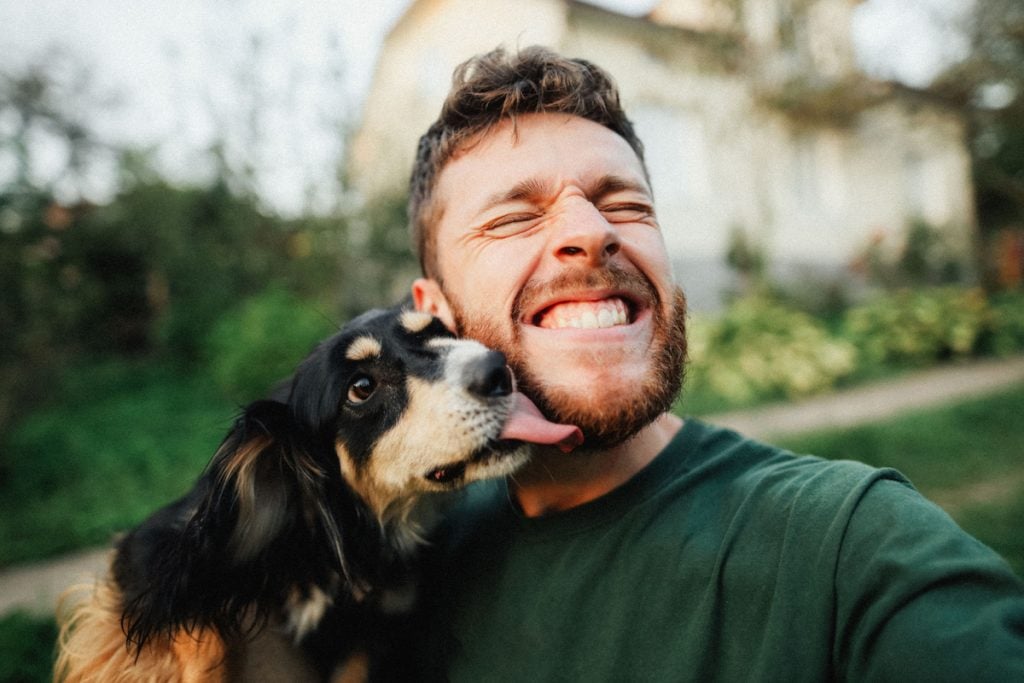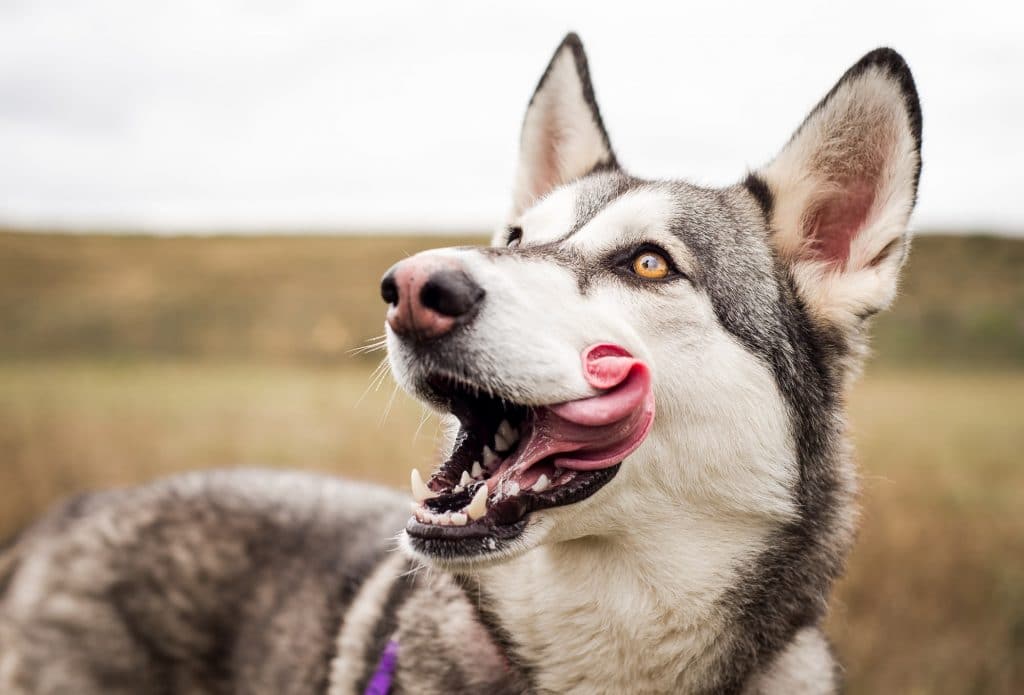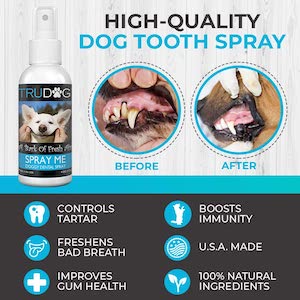- Not a substitute for professional veterinary help.
When your dog licks you, do you think, “aw, sweet,” or “ew, gross!”? Whether you love the slobbery affection or prefer a dry snuggle, most dog owners are familiar with the phenomenon. So, why do dogs lick so much? And why does it sometimes seem as if dogs never want to stop licking?
We asked veterinarian Dr. Karla Frazier for the reasons why dogs lick us—and themselves. Frazier explains that the behavior can occur for a variety of reasons but generally falls into two overall categories: behavioral and medical. Sometimes the reasons constitute perfectly normal behavior, while others do not. Here’s more insight, as well as to when you should seek additional consultation or medical attention for your pup.

Nazar Rybak via iStock
Why Does My Dog Lick Me?
Behavioral causes of licking stem from the fact that dogs are pack animals and interact with each other by nature. Some pets transfer these behaviors to their human pack members and treat us as they would their fellow dogs—hence, all the slobber.
Your dog might be licking you because:
- It’s a form of communication, as in the case of a mother dog and her pups
- They’re signaling submission, as from one dog to another
- It’s a sign of affection, as when one dog licks or “grooms” another’s face/ears
Besides these three main reasons, don’t forget, our salty skin can simply taste good to dogs, especially after a sweaty workout.
Why Do Dogs Lick Themselves?
Medically speaking, skin lesions are one of the most common reasons for why dogs lick, but there are many other causes, some that require medical intervention, such as:
- Wounds: Dogs lick their wounds by nature. However, this can cause secondary damage in the form of additional inflammation, which can lead to infection. Wounds are treated based on their severity, often times requiring collars that prevent further licking of the area.
- Fleas: Don’t underestimate these pests! Exposure to fleas causes itchiness that leads to licking and chewing. If your pet is licking over their tail base (where the tail joins the body), especially to the point of hair thinning or hair loss, they are likely to be allergic to fleas. Do yourself a favor and administer superior quality flea control to your pet every month of the year. It only takes one flea for a flea-allergic pet to be licking like there is no tomorrow.
It only takes one flea for a flea-allergic pet to be licking like there is no tomorrow.
- Environmental allergies: Allergic pets will lick due to itchiness. Paws, armpit areas, flanks, and groin are the major areas of licking in this case. Often these are seasonal in nature. Seek medical attention for undue licking, especially if the skin is red or irritated.
- Dermatitis: A dog’s skin can be inflamed for a host of other reasons as well: mites, hormonal disease, food allergies, auto-immune diseases, non-allergy irritation, “hot spots,” and others. A good rule of thumb is to have your pet examined if their skin appears red/irritated, or if they are showing hair thinning or hair loss.
- Other: Though skin disease comprises the lion’s share of causes for licking, here are some unrelated (and uncommon) causes: pica (licking or eating non-food items; often a sign of GI disease), seizure-type behavior (incessant licking at the air or smacking of the lips), and pain (licking at an area of a specific joint).
Bottom line: If it is an unusual behavior for your pet, have it checked out.

iStock via Photography by Adri
Why Do Dogs Lick the Air?
If, in the course of your dog training, you have discouraged the behavior, your dog may take to licking the air when they feel the impulse. They could also have something stuck in their mouth, and be trying to get it out. Or they could simply be smelling something interesting. Licking helps dogs move scent molecules to the organ (called Jacobson’s or vomeronasal organ) that senses them most fully.
Take the whole picture into account when you’re trying to determine why your dog is licking the air. And try leading your dog to the water bowl if you think it’s just a hair.
Why Do Dogs Lick the Couch or the Carpet?
Licking furniture or the floor can be typical dog behavior, especially if they find tasty crumbs, smells, or food residue. However, if your dog licks these areas for long periods of time, and is hard to interrupt, their normal licking behavior may have changed into an obsessive behavior pattern.
If you’re concerned about your dog’s obsessive licking, consider visiting a dog trainer, who can give you tools to teach your dog to self-soothe in ways that don’t wreck the furniture. You can also work with a trainer to address underlying sources of anxiety and obsessive behavior, such as separation anxiety, and under and over-stimulation.
The Takeaway
Beyond medical reasons, why else might your dog be licking themselves? Dog are overall clean animals, and will often “clean up” after being outside, including paw licking. They also groom the genital area after voiding.
Some dogs will lick themselves out of boredom, which tends to be a benign behavior, though it can stem from anxiety and other obsessive behaviors.
Remember that our pets are individuals who react to the world differently. If your pet is obsessively licking and/or seems anxious, it’s time to seek professional advice to address the underlying problem.
Dog licking has many root causes. As an owner, you will have the best sense of whether the behavior is normal. If you have concerns, watch your dog’s signs and body language to figure out what they’re trying to tell you. And if the licking seems strange or worrisome, seek professional help from a veterinarian or dog trainer.
Dr. Karla Frazier is a veterinarian serving the areas of Clemmons, Mocksville, and Advance in North Carolina. She is a graduate of the Virginia-Maryland Regional College of Veterinary Medicine. She opened Hillsdale Animal Hospital in 2000.






